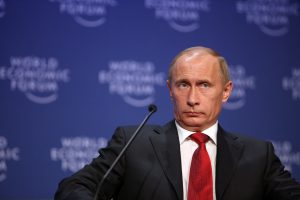I don’t know. Where was the bubble? Was it in Paris or was it in Brussels, was it in the European Parliament where I came from? For me, Brexit was the tears of my British friends leaving the Union, that incredible mess that had made us all cry so much on Thursday, the last day, British and European elected representatives, because it is no longer the same thing.
I had come from the broken heart of the Union but, on the French television sets to which I was invited, the big question was whether or not the United Kingdom was going to benefit from its departure, whether or not we French were going to lose out, and whether or not we should not, in the end, take communion with these happy Brexiteers who were, on Friday evening, counting the seconds leading them to their “freedom”.
I did not get it. I did not understand what was going on and understood even less why the last defender of Frexit, sitting to my left, Mr Philippot, a man who represents nothing, was here congratulating himself on the fact that British “democracy” had prevailed over the Brussels “dictatorship”. So I did what it seemed like something one should never do. I cut him off to ask him who was this dictator who would impose everything on the peoples enslaved by the Union. “Name him!”, I told him, and, as he obviously had no name to give me, he told me that the dictator… was me.
I am Nero because I believe in the need for European unity and because I have defended it, I have advocated it relentlessly, for 27 years on France Inter, and because I continue to do so, criminal as I am, on the benches of Parliament. I am the dictator, and Mr Philippot was saying this seriously, and what could I have said to him without telling him that nobody could be any more stupid than this?
So I took a deep breath. I wanted to forget it and instead talk about what was happening today in the Union, well beyond Brexit, about this consensus that is forming around the need for European defence, diplomacy and joint investments, but let us be clear-headed… What I said didn’t sound convincing. This fact is far more important than the British departure towards indefinite horizons. It is true, but I had a feeling that this was not of interest for the audience and that the big question was whether the British or we, the French, were going to benefit from this march towards the freedom of the United Kingdom, because the clock was there, ticking hours, minutes and seconds like before a New Year’s Eve which hugs and cheers were going to greet.
But, for God’s sake, what freedom? What kind of democracy is supposedly regained? Nobody asked about it. It was obvious because everyone was still thinking about the advantages of one or the other, while the only question, the real question, was whether a united Europe would be able to rise to the challenge of the United States, China and Russia, and how the fragmentation of this Brexit would help us Europeans, including the British.
On that stage, we did not speak the same language and what distressed me most that evening was not the Brexit but the attraction it exerted on the French, because this attraction of being blind – how much would I like to be wrong! – I felt it everywhere in that Parisian bubble.


